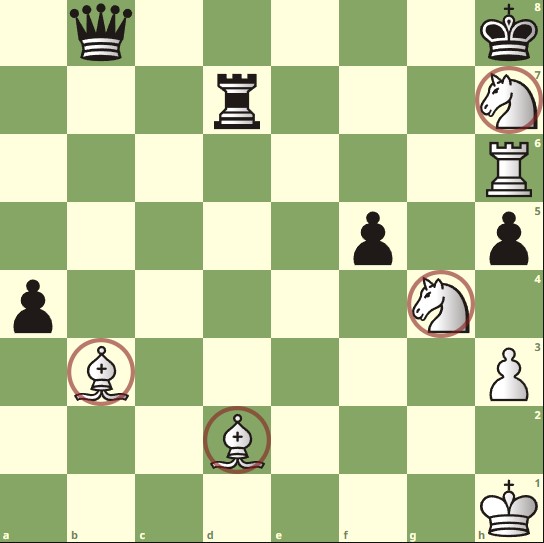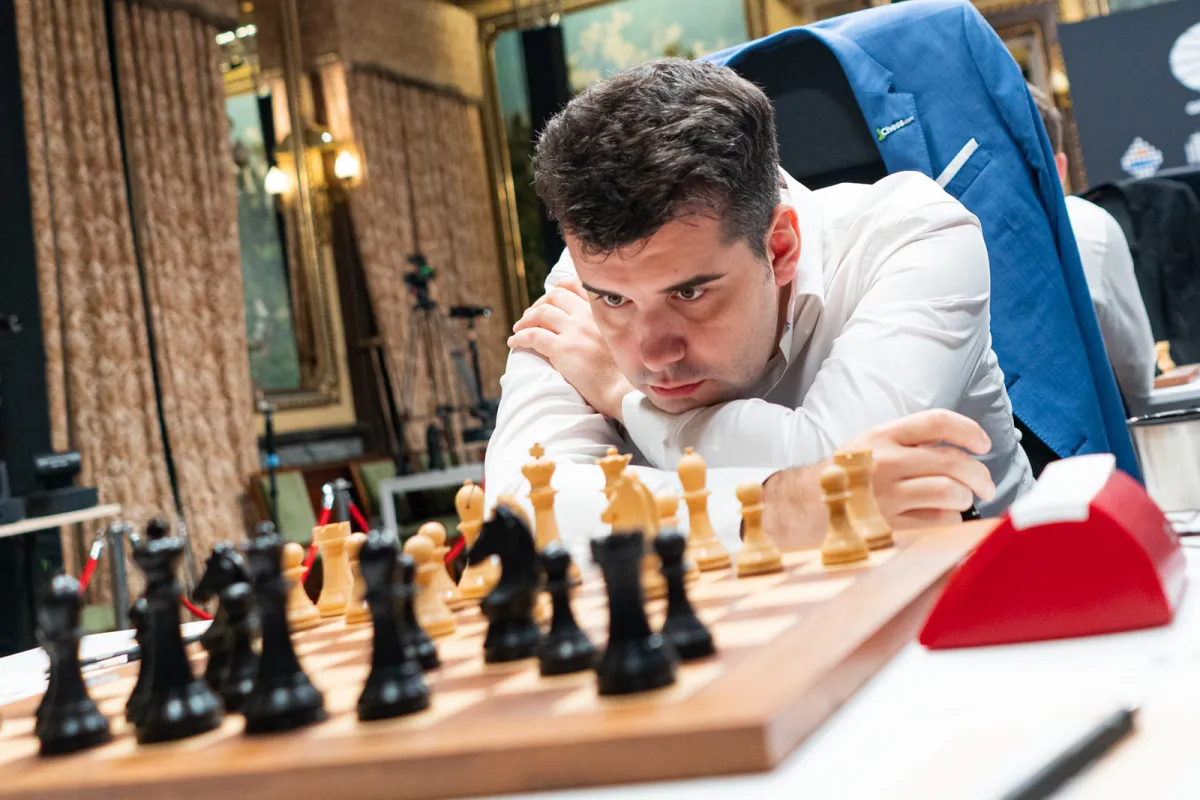En prise is a French term that literally translates to “in taking,” which can be more appropriately translated roughly as “can be taken.” In chess, it refers to a piece that is either undefended or has more attackers targeting it than defenders. Not taking care of en prise pieces will quickly lead to a loss of material.
En prise: meaning and explanation
An en prise piece in chess is one that is liable to be captured by the opponent. This can either be because it is completely unprotected by any other friendly piece on the board or because the other player is lining up more attackers on it than the defenders available to recapture. Take a look at this example, where both white knights and white bishops are en prise:

Moving a piece into a position like this on the board is to “put it en prise”, which is generally a bad idea. Unless it is a calculated sacrifice or there are much more pressing concerns on the board, this situation should be avoided.
Another similar chess term you may be familiar with is a “hanging piece”: one that is entirely undefended. This is not exactly the same as en prise, because an underprotected piece (that is attacked more times than it is defended) is not a hanging one, but it is still en prise, meaning your opponent can take it with impunity.
There is another “false friend” from the chess vocabulary to keep in mind: though they sound similar, en prise has nothing to do with en passant, which is a special pawn move that allows you to capture another pawn that landed directly next to yours in certain unique circumstances.
Loose pieces drop off: dealing with en prise pieces
“Loose pieces drop off,” or LPDO, is a classic chess acronym aimed at reminding beginner players of the importance of keeping their pieces protected. Unless you have a specific tactical reason or a plan you’ve calculated out precisely, you are likely to get in trouble by leaving your pieces en prise. As you get better at chess and gain a better understanding of the game, it will become significantly rarer that you do so.
This means that the best way to deal with en prise pieces in your position is to either defend them or to retreat them to a safer square. Consequently, finding and targeting en prise pieces in your opponent’s camp can be a great way to gain an advantage and win material.







Published: Apr 30, 2022 08:54 am